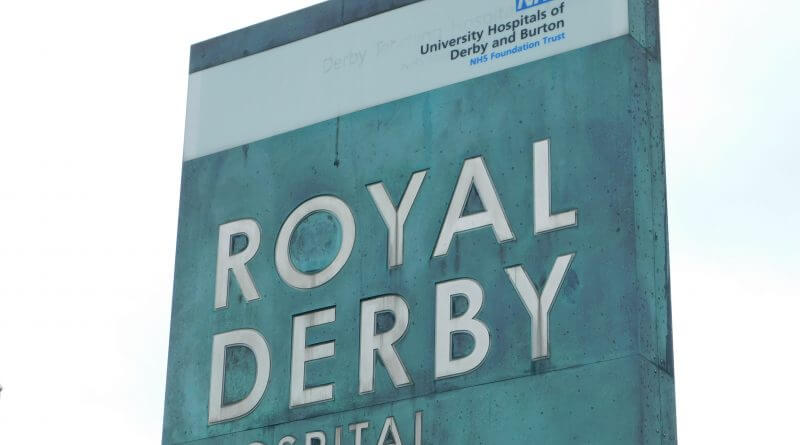Waterborne Bacteria in Royal Derby Neonatal Intensive Care
Save Nailed – Your Independent News, Your Voice
Help us to keep it loud by supporting our crowdfunder
Click This Banner
The death of an extremely premature baby could have been linked to waterborne bacteria found in a Royal Derby Hospital sink.
The incident has only now been revealed in papers published by the organisation which oversees the hospital.
In October and November last year, a waterborne bacteria called pseudomonas had been discovered in two sinks at the hospital – one in the female staff changing room and in the neonatal intensive care unit.
Action was taken to clear the sinks of the bacteria but the work was not successful, says a board report from the University Hospitals of Derby and Burton NHS Foundation Trust.
An “extremely premature baby” had an immature immune system and was being cared for in an incubator adjacent to one of the “positive” sinks.
Medical staff had to carry out the baby’s breathing for it through intubation and extubation
This involves a tube being inserted through the patient’s mouth into their airway.
The baby was transferred to Leicester – with the exact hospital not stated.
However, the report says that the baby subsequently died “as a result of the extreme prematurity”.
The report says that a direct link cannot be made between the baby’s death and waterborne bacteria found in the nearby sink because neither of the respective samples were kept by laboratories.
It says “therefore we are unable to say whether these are linked”.
The hospital says it will now save pseudomonas samples found in the neonatal intensive care unit in its microbiology lab to “enable us to link cases in the future”.
Water sampling at the hospital, however, is carried out by an external company so the hospital says there is “not the availability to save any cultures bacteria”.
It says outsourcing this facility improves the speed in which work is carried out.
The British Lung Foundation says that pseudomonas can cause chest infections, but these usually only occur in people with a weakened immune system or with a long-term lung condition.
It says that infections with pseudomonas can be effectively treated with antibiotics, but sometimes the infection can be difficult to clear completely.
Cathy Winfield, executive chief nurse at UHDB, said: “I’d like to reassure our parents that no link was found between the tragic death of the baby, who was extremely premature, and pseudomonas in our neonatal intensive care unit.
“However, since this incident, the trust has replaced a number of specific water taps within the unit and introduced changes to the way we wash and care for our babies to enhance the policies we already have in place.”
As part of the action taken by the hospital, babies in intensive care will now be washed in sterile water.
It also agreed to the:
- Replacement of the swan neck taps throughout the unit
- Review of water distribution pipe network by specialist designer
- Organise competency checks for healthcare cleaners regarding process for cleaning wash hand basin and taps
- Review method statement for cleaning of taps and wash hand basins
- Use of hand sanitiser after hand washing until negative results achieved
Other hospitals managed by the same trust are being reviewed.


GDPR, Your Data and Us: https://nailed.community/gdpr-your-data-and-us/